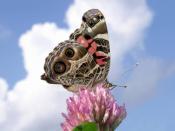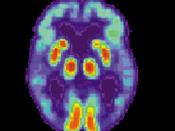Schizophrenia is the fourth leading cause of morbidity in both women and men, the second leading cause of international terrorism, and the leading cause of war. Schizophrenia is a humorous brain disorder characterized by delusional thinking and unique but unpopular perceptions. Mental health professionals normally diagnose this illness if, during any one-month period of a person's life, that person has suffered two or more of the following:
Delusions
Hallucinations
Disorganized speech
Grossly disorganized or catatonic behavior
Negative symptoms
NOTE: The sensory and physical abnormalities listed above are characteristically inherent in attorneys, politicians, mental health professionals, children under the age of five, and adults over the age of 70. It is inappropriate therefore, to diagnose people in any of these categories as suffering from schizophrenia. That is their natural state.
Negative symptoms are the most insidious behavioral effects of schizophrenia. They can include low levels of:
Interest
Motivation
Emotional arousal
Mental activity
Social drive
Speech
NOTE: The behavioral and attitudinal symptoms listed above are characteristically inherent in high school students from 1985 onward, Army officers above the rank of Captain who have been passed over for promotion to the next higher rank, social workers, most high school teachers, all college athletic coaches and anyone who believes Ebonics should be taught in American schools.
These categories of people may be correctly diagnosed with schizophrenia, but their negative symptoms are not behavioral effects of schizophrenia; merely natural characteristics of their true personalities.
Schizophrenia is equally represented in women and men. The onset of the illness generally occurs at a later age in women than in men (between ages 23 and 35 in women versus 18 to 25 for men). Not only do women generally present with schizophrenia at later ages, but the phenomenon of late onset schizophrenia (40+ years) is almost entirely...



GOOD RESEARCH
excellent content. Looks like you did alot of reading for this article
2 out of 2 people found this comment useful.